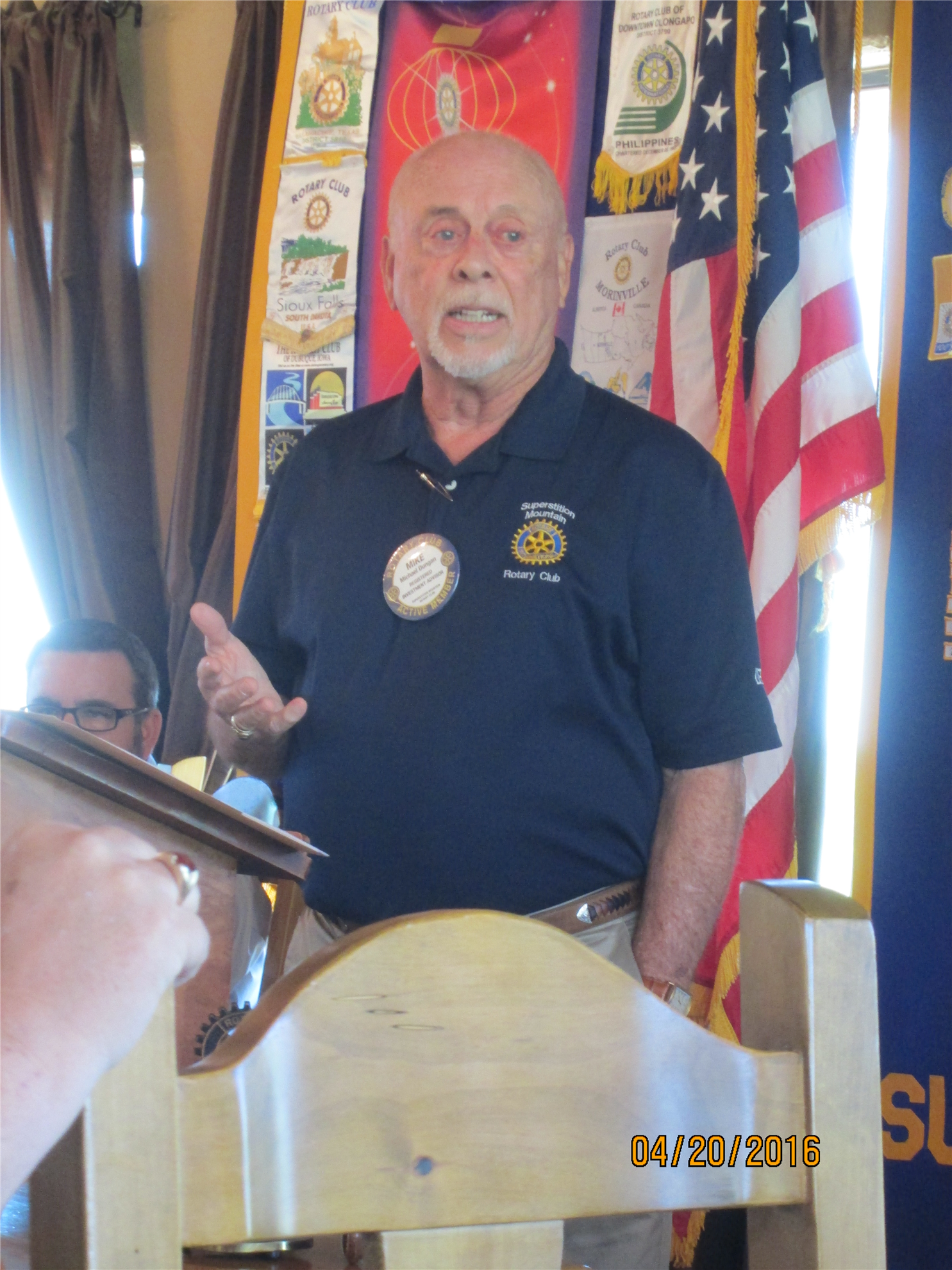SPEAKER
Mike Dungan was our presenter, discussing changes coming in the security industry.

There are some major structural changes coming to the relationship between clients and investment advisors. The Department of Labor has issued a statement that, “There have been too many shortcuts between advisors and their clients. People are being ripped off.”
There is a distinguishing factor between a broker and a Registered Investment Advisor (RIA). A broker will recommend a product for a client according to a “suitability standard” based on the client’s age, assets, and risk tolerance. A RIA, however, must meet a higher standard called the “fiduciary rule.” The RIA pledges honesty, full facts, current information, listening, and putting the clients’ best interests first, even if it costs the advisor money. “It’s a lot like the Rotary Four-Way Test.” A RIA can be sued if he/she does not live up to the fiduciary rule. “A year from now, when the Department of Labor finally resolves these issues, they’re going to have a set of standards that are different from what you’re used to…the rules will apply to everybody.”
Over the last four years, arbitration has gone up by 20-25% because of shortcuts taken by individuals who represent different plans, to the detriment of their clients’ accounts. “There was a classic case back in 2004 over a conflict of interest. The State of California sued a nationally known broker dealer for about $300 million, because the individuals representing that broker dealer were steering clients to six or seven mutual funds. The mutual funds would then kick back to this broker dealer. They eventually settled with the SEC for about $75 million.”
“You never know when you buy a product if there’s a conflict of interest.” If you are sold a mutual fund, there is a “trail” that comes to the advisor, paying about a quarter of a percent ongoing – supposedly to pay for advertising and other business expenses. That will now be deemed as a conflict of interest. “That’s been going on a long, long, long time.”
Exchange Traded Funds (ETFs) allow for intra-day trading. “They look like a mutual fund, but you can buy and sell them like a stock.” Because they are low cost, “There’s about a trillion dollars of opportunity for the ETF industry to convert mutual funds into ETFs.” The low cost means that every dollar the consumer is saving for retirement goes to retirement, “not to some crook.”
A fiduciary is someone who is responsible for your money and has your trust… it’s a substantial change. The brokerage industry has been fighting this for a very long time, but change IS coming. Brokers will have to do their due diligence and be ready to be audited.
When interviewing a financial advisor, ask about fees; ask about how often he/she will meet with you and on what conditions. “I believe deeply that it’s very important to have an Investment Policy Statement (IPS). It’s a contractual thing, rather like a marriage certificate: ‘What am I, as an advisor going to provide for you; what are the conditions under which I will do that; and what are you, as the client, going to provide for me.’”
